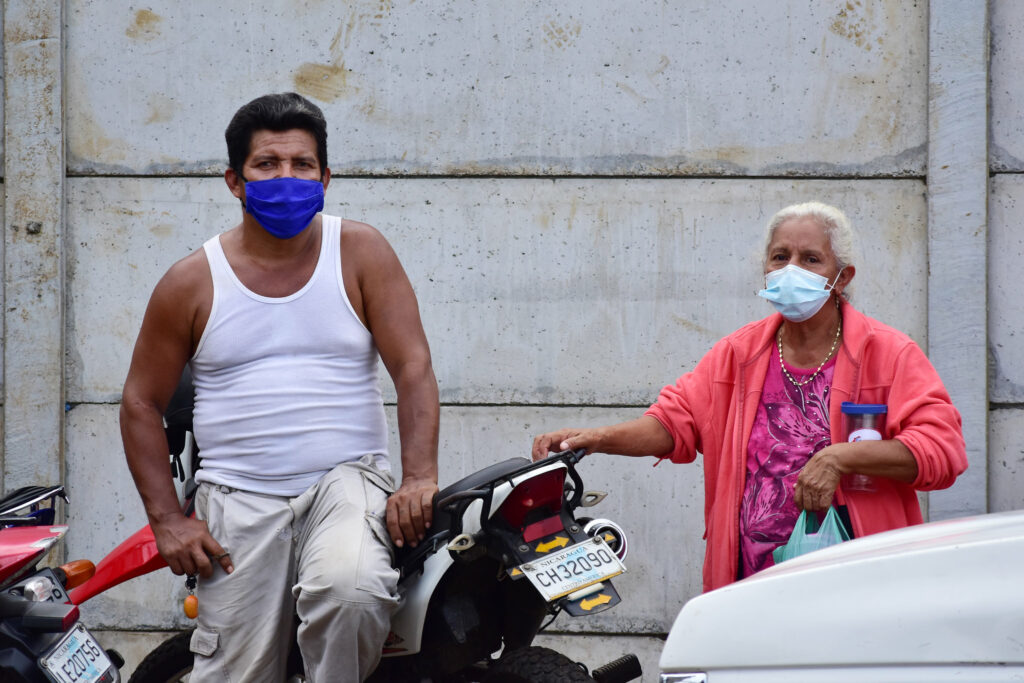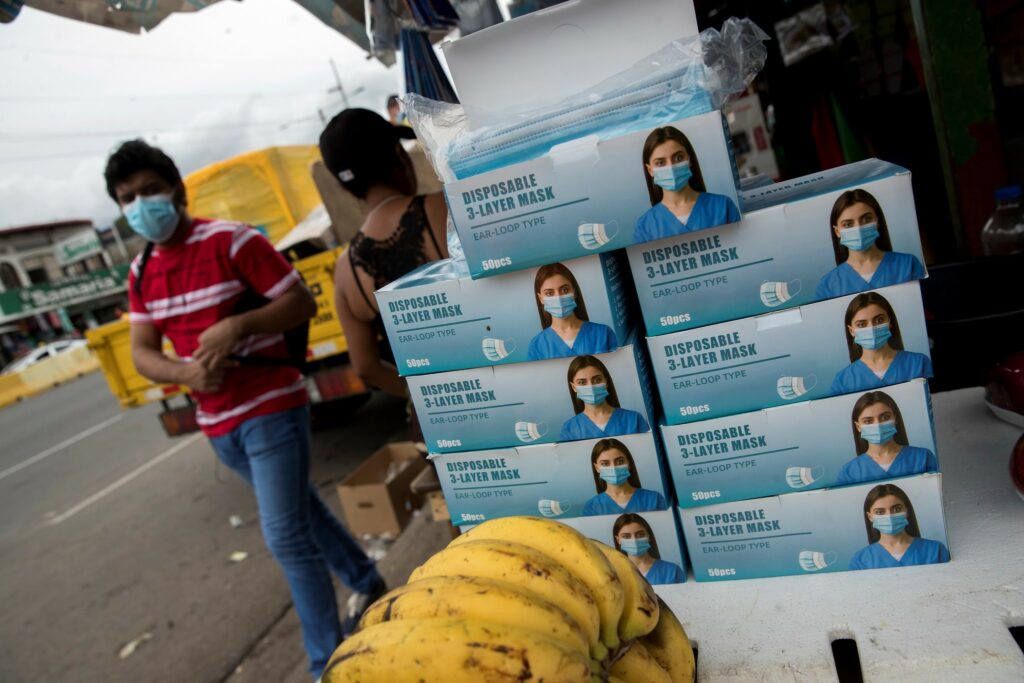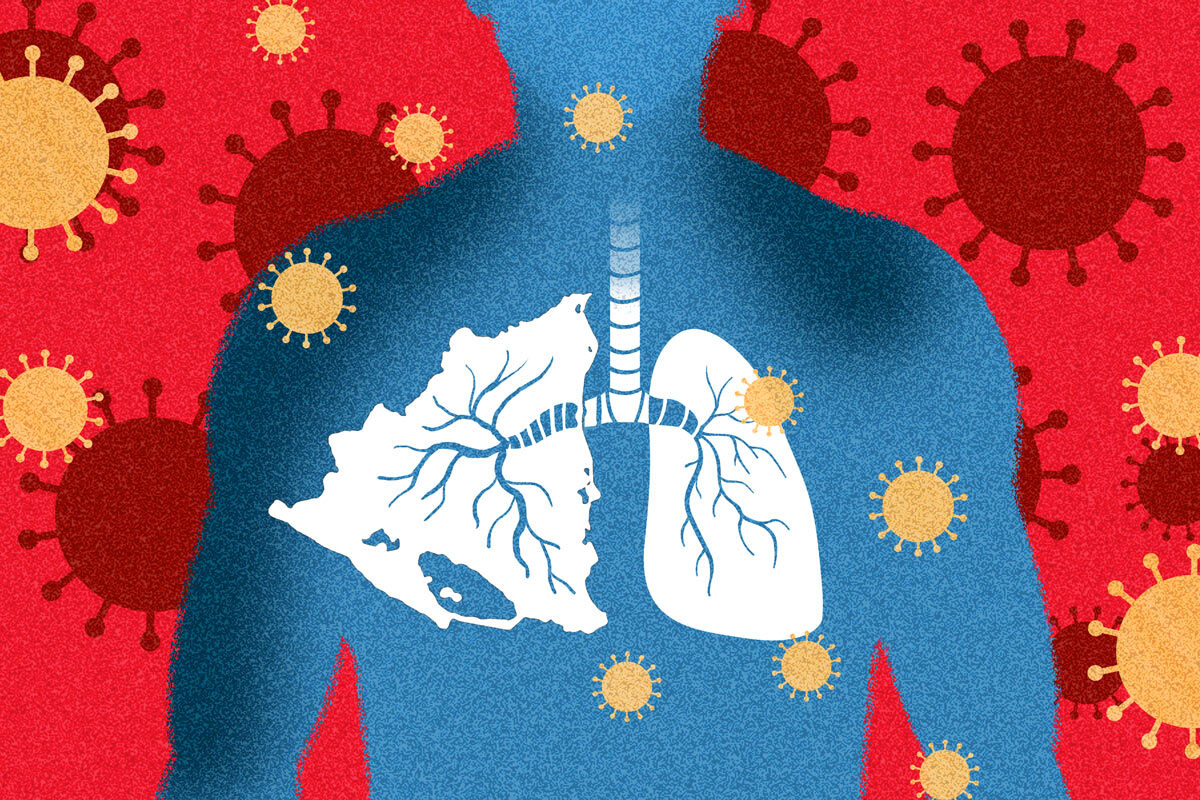The Ministry of Health (Minsa) recorded 22,369 cases of pneumonia nationwide as of July 8, 2024, according to an investigation by DIVERGENTES. If this trend continues, the number of reported cases could exceed 38,000 by the end of the year, continuing to increase anually.
This disease ranks first in hospital discharges in Nicaragua, and in 2023, it was the twelfth leading cause of death, which is an exception, as it usually ranks among the top causes.
In general, the number of hospitalizations and deaths caused by pneumonia has always been high, even before the COVID-19 pandemic between 2020 and 2021. However, in recent years, this condition has seen an alarming increase, potentially surpassing the records from before the global health crisis.
The reports of infections published by Minsa in 2024 have been inconsistent. The latest Epidemiological Report indicated 17,347 cases by the second week of April, a concerning rate of over 4,000 cases per month, just in the first quarter of the year.
However, since then, Minsa has only sporadically published some data that do not reflect the total number of cases, so the 22,369 number of cases identified by DIVERGENTES could be higher.
Deaths decreased, but cases continue to increase

The figures for infections and deaths have been manipulated by Minsa as a result of the repressive policies of the Ortega-Murillo dictatorship.
The data have not been consistent for years, maintaining the State policy that began with the covid-19 pandemic, which was denied by the regime, which also tried to conceal deaths from this disease with deaths from pneumonia.
Pulmonologist Jorge Miranda notes that although pneumonia cases have always been high, paradoxically, hospitalizations for this disease decreased in 2020, the year the pandemic began, but the number of deaths from this cause skyrocketed. “Epidemiologically, it is contradictory,” he explains.
“After the pandemic, pneumonia hospitalization cases saw a rebound from 2022 and increased even more in 2023, returning to pre-pandemic numbers, but its lethality decreased because people are now vaccinated against coronavirus and influenza,” he continues.
More vaccines are now necessary

There are a lot of factors behind the increase in pneumonia cases, he points out. Mainly, they are related to the increase in people susceptible to the disease, such as children, people over 65, and those with debilitating chronic diseases like diabetes, obesity, cardiovascular, and lung conditions.
Miranda also indicates that another factor is the circulation of respiratory viruses, which is stronger each year with the onset of winter, mainly in May and October, which is when most infections occur, primarily from influenza, COVID-19, and respiratory syncytial virus.
On the other hand, the vaccination rates of vulnerable populations against these viruses are another important element in the number of preventable infections.
This year, Minsa administered 851,120 doses against influenza at the beginning of the year, 72,711 fewer vaccines than in 2023. Instead of increasing doses, they were reduced.
Other vaccines administered to prevent pneumonia infection include the pneumococcal vaccine for children, with which 384,137 children were immunized, and the adult pneumococcal vaccine, with which 49,945 older adults were inoculated.
According to medical personnel consulted by DIVERGENTES who requested anonymity, one of the country’s greatest health urgencies is to increase the number of vaccines to inoculate more people and conduct awareness campaigns so that people accept immunization, as many refuse to get vaccinated.
Additionally, the number of doses is not enough for the vulnerable population, which, besides infants and the elderly, includes people with chronic diseases, pregnant women, and healthcare personnel directly attending to patients.
“There is indeed a severe increase in pneumonia cases, and the number of doses should be increased, and the range of the population to be protected should be expanded. In other words, act to contain the problem, not act as is done every year,” the consulted experts indicate.





